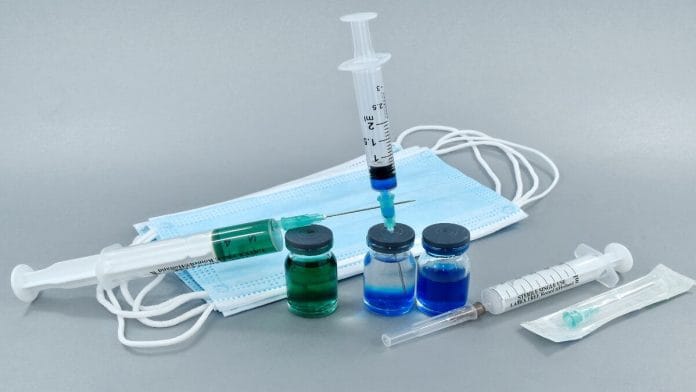London: The U.K. is poised to give the first shots of a Covid-19 vaccine from AstraZeneca Plc and the University of Oxford on Monday, in a race against a faster-spreading coronavirus variant that’s prompted new lockdowns across much of the country.
U.K. regulators cleared the AstraZeneca-Oxford shot last week, marking its first approval worldwide. It’s the second coronavirus injection to be authorized for emergency use in Britain, after one from Pfizer Inc. and BioNTech SE received the go-ahead in early December.
The U.K. has moved more rapidly on vaccine approvals than the U.S. or the European Union, clearing the Pfizer-BioNTech shot first and giving the green light to the AstraZeneca-Oxford product despite clinical trials that involved a smaller number of participants and that were complicated by a dosing error. A regulatory decision to lengthen the interval between doses of the two-shot vaccines to as many as 12 weeks has prompted further questions.
Britain is stepping up its vaccine campaign as coronavirus infections surge across the country, with more than 50,000 new cases reported daily. A new strain that’s estimated to be as much as 70% more transmissible is fueling the pandemic’s resurgence. Schools have been closed across much of the country and Prime Minister Boris Johnson has warned that tougher restrictions may be on the way.
More than a million people in Britain have received injections of the Pfizer-BioNTech vaccine, according to a statement from the Department of Health and Social Care. More than 500,000 AstraZeneca-Oxford doses will be available as of Monday, and they will be delivered at hospitals for the first few days. The U.K. aims to expand the number of vaccination sites to more than 1,000, with as many as 100 more hospitals and 180 general practitioner-led services coming online this week.
When asked about the U.K.’s plans for mass vaccinations, Johnson didn’t offer any detail about how the country would be able to deliver 2 million vaccines a week. The government has previously said it plans to set up mass immunization centers as the National Health Service seeks to meet a goal of vaccinating all vulnerable Britons by spring.
“Everybody’s working flat out to do this,” Johnson told BBC’s Andrew Marr on Sunday. “We do hope that we will be able to do tens of millions in the course of the next three months.”
Other approvals
Although the newly approved vaccine has shown lower effectiveness than the Pfizer-BioNTech one in clinical trials, it has some key advantages: It’s cheaper and easier to transport and store, requiring only refrigerator temperatures rather than deep freezing. That makes it crucial for the broader global vaccination push, and countries including Argentina and India have followed the U.K. in authorizing the shot for use.
The NHS is administering the first injections under a two-shot regime approved by the Medicines and Healthcare Products Regulatory Agency. The second can be given as many as 12 weeks later, as the U.K. seeks to maximize the number of vulnerable people who receive the first portion, which provides some protection from infection.
The regulator has yet to publish full data backing its decision to opt for that regime, which has drawn opposition from the British Medical Association.
“It is grossly and patently unfair to tens of thousands of our most at-risk patients to now try to reschedule their appointments,” said Richard Vautrey, chairman of the association’s General Practitioners Committee, in a statement. – Bloomberg
Also read: Stay home for New Year’s eve, pretend you have Covid — UK tells public to curb spread






